- Home
- Barry Eisler
Zero Sum (A John Rain Novel)
Zero Sum (A John Rain Novel) Read online
PRAISE FOR BARRY EISLER
“Eisler is at the top of his game.”
—RT Book Reviews
“Eisler combines the insouciance of Ian Fleming, the realistic detail of Tom Clancy, the ennui of Graham Greene, and the prose power of John le Carré.”
—News-Press
“Furious and creative . . . Rain’s combination of quirks and proficiency is the stuff great characters are made of.”
—Entertainment Weekly
“No one is writing a better thriller series today than Barry Eisler. He has quickly jumped into my top ten best American mystery/thriller writers, along with Michael Connelly, Lee Child, Walter Mosley, and Harlan Coben . . . Rating: A.”
—Deadly Pleasures
“Written with a delightfully soft touch and a powerful blend of excitement, exotica, and what (ever since John le Carré) readers have known to call tradecraft.”
—The Economist
“Barry Eisler serves up steamy foreign locales, stunning action and enough high-tech weaponry to make for an A-plus read.”
—New York Daily News
ALSO BY BARRY EISLER
A Clean Kill in Tokyo (previously published as Rain Fall)
A Lonely Resurrection (previously published as Hard Rain)
Winner Take All (previously published as Rain Storm)
Redemption Games (previously published as Killing Rain)
Extremis (previously published as The Last Assassin)
The Killer Ascendant (previously published as Requiem for an Assassin)
Fault Line
Inside Out
The Detachment
Graveyard of Memories
The God’s Eye View
Livia Lone
SHORT WORKS
“The Lost Coast”
“Paris Is a Bitch”
“The Khmer Kill”
“London Twist”
ESSAYS
“The Ass Is a Poor Receptacle for the Head: Why Democrats Suck at Communication, and How They Could Improve”
“Be the Monkey: A Conversation about the New World of Publishing” (with J. A. Konrath)
This is a work of fiction. Names, characters, organizations, places, events, and incidents are either products of the author’s imagination or are used fictitiously. Any resemblance to actual persons, living or dead, or actual events is purely coincidental.
Text copyright © 2017 by Barry Eisler
All rights reserved.
No part of this book may be reproduced, or stored in a retrieval system, or transmitted in any form or by any means, electronic, mechanical, photocopying, recording, or otherwise, without express written permission of the publisher.
Published by Thomas & Mercer, Seattle
www.apub.com
Amazon, the Amazon logo, and Thomas & Mercer are trademarks of Amazon.com, Inc., or its affiliates.
ISBN-13: 9781477824481 (hardcover)
ISBN-10: 1477824480 (hardcover)
ISBN-13: 9781477824467 (paperback)
ISBN-10: 1477824464 (paperback)
Cover design by Edward Bettison
First edition
Lasciate ogni speranza, voi ch’entrate.
Contents
chapter one
chapter two
chapter three
chapter four
chapter five
chapter six
chapter seven
chapter eight
chapter nine
chapter ten
chapter eleven
chapter twelve
chapter thirteen
chapter fourteen
chapter fifteen
chapter sixteen
chapter seventeen
chapter eighteen
chapter nineteen
chapter twenty
chapter twenty-one
chapter twenty-two
chapter twenty-three
Notes
Acknowledgments
About the Author
chapter one
Whoever said “You can’t go home again” didn’t know how good he had it. At least there was a home he couldn’t go to. All I had was Tokyo. And no matter how many years I spent there, that bitch of a city was never going to be any kind of home to me. More an unrequited love.
So it was probably less from nostalgia than longing that I found myself back there in the fall of 1982. Or maybe it was something deeper and more stubborn still. Why do salmon swim upriver to the place where they were spawned? All animals have programming. What makes humans special is our need to rationalize our actions, rather than just accept them.
Of course, I didn’t understand any of that at the time. I told myself that life in the Philippines had grown stale for me, my work with the insurgency in Mindanao too dangerous to continue. A change in venue would be good. The question was, a change to where? And for an exiled mercenary with no family, no connections, and no friends outside the country that begot him, it was a question with only one answer.
Or maybe it was all just fate. At least, that’s how it felt that morning as I strolled along the gravel paths of Tokyo’s Hamarikyu Gardens, waiting for my contact, Miyamoto, a Liberal Democratic Party fixer I had once helped with a problem, and who I hoped might now help me in return. Certainly the weather was auspicious: a deep-blue sky; a cool, dry breeze; everywhere ginkgo and maple leaves lit by the sun in flaming yellow and orange and red. The city’s soundtrack played all around me, as familiar as a favorite album heard after a long hiatus: the buzz of higurashi cicadas in the trees; the rumble of truck traffic on the overcrowded roads surrounding the garden; the chimes of an incoming Yamanote train in the distance. It felt good to be back. It felt easy.
Yeah, I know. Stupid. But remember, I was barely out of my twenties at the time. Blooded, but not yet seasoned. There was still a lot I didn’t want to accept about the permanence of the path I had embarked on ten years earlier, when I had gone to war with the yakuza and the CIA, and then “died” to protect the girl I had fallen in love with, who was innocent of all of it. She was safe now, in America, which meant Tokyo would be safe for me.
I know. Stupid again. But, in retrospect, apparently not ineducable. And is there any teacher better, more patient and determined, than fate?
For an hour or so, I strolled and snapped photos with an Instamatic camera, blending with the tourists and Tokyoites around me—one of the lessons I had learned from my late and unlamented CIA handler, Sean McGraw. I wasn’t worried about a threat from Miyamoto. Ten years earlier, he had taken a huge risk to warn me that his superiors wanted me dead. I wouldn’t soon forget that, or stop looking for a way to repay him.
It was nearly noon when I saw Miyamoto enter the garden from the Otemon Bridge gate. His hair was thinner and grayer, and he was more portly than I remembered. But I would have recognized him from his tie alone—a floral design probably five inches across, and as incongruous in conservatively dressed Tokyo as a giggle at a funeral.
I waited until he had almost reached my position before emerging from behind a cluster of retirees enjoying the foliage. Urban concealment hadn’t yet become second nature to me, and I was still deliberately practicing it.
His face lit up with a broad smile when he caught sight of me, and when we were closer he bowed unnecessarily low. I would have matched the bow, but knew he would then have felt compelled to go even lower to show his appreciation and respect. So I remained at a more ordinary angle until he had straightened.
“Rain-san,” he said, still beaming. “Hisashiburi desu ne.” It’s been a long time.
“Sō desu ne,” I said, returning his smile. Indeed it has.
“It gives me such pleasure to s
ee you,” he continued in formal Japanese. “And you haven’t changed at all. Other than your tan—you look like a surfer! The climate in the Philippines is to your liking?”
“I can’t complain. You look the same, too. Things at work are agreeable?”
He laughed. “I look older, balder, and fatter. But yes, things at work are agreeable. Thanks to you.”
He was referring to an introduction I had brokered—a contractor, who had removed an extortionate LDP functionary. We both understood the contractor was, in fact, me, but continued to maintain the polite fiction that we were talking about some mysterious third party.
“As always,” I said, “you are being far too kind. I wish I could have done more. And regardless, your introductions in the Philippines were more than repayment.”
Miyamoto had been an officer in the Imperial Japanese Army. Stationed in the Philippines, he had maintained contacts there after the war, contacts that had led to my work with the insurgency in Mindanao. It had been satisfying, and reasonably lucrative, to be on the side of the guerrillas for a change—using what I had learned the easy way with American Special Forces, and then the hard way at the hands of the Vietcong.
He gave a half bow. “I am so pleased my minor service proved useful. Now, what brings you back here? Was there no judo in the Philippines?”
I laughed. I had been obsessed with judo training at the Kodokan, the birthplace of the art, when I’d last lived in Tokyo.
“I couldn’t find a dojo,” I told him. “But I’m sure I’ll get back into it in Tokyo if I stay.”
“So this visit is more than a vacation?”
“Well, that’s something I hoped you and I might discuss.”
“That would be a great pleasure. Perhaps over tea?”
A short distance away was the Nakajima Teahouse, famous for nearly three centuries for its potent matcha tea and its views of the garden surrounding the pond over which it was built. Ten years earlier, it had been the site of a fateful conversation between Miyamoto and me, and an even more fateful decision. If I’d been more superstitious, or maybe just smarter, I might have proposed somewhere else this time. But ten minutes later, we were kneeling on the tatami mats, savoring small sips of strong green tea and wordlessly contemplating the beauty of the pond and the garden.
Miyamoto broke the silence. “I am struck by your mindfulness. As I grow older, I find my own sometimes slipping. It is kind of you to so gently remind me.”
The mindfulness he spoke of was called nen in Japanese—an acknowledgment, an appreciation, of the importance of small things. The things that make living more worthwhile. And that, in my work, make it more probable, as well.
I smiled. Once upon a time, I had thought Miyamoto’s humility to be entirely straightforward. Now, I recognized that while the quality was still genuine, he used it also to communicate concepts for which a more straightforward approach might cause offense, and therefore incomprehension.
“It was kind of you to teach me to be more mindful in the first place,” I said, carefully setting down my cup of tea. “And that you continue to teach me now.”
He dipped his head as though embarrassed. “If I had anything to teach, I could not ask for a better student.”
I smiled again. I had the feeling Miyamoto had a lot to impart, and not many people to impart it to. Someone else’s loss was my gain.
For a while, we sipped our tea and engaged in pleasantries about the unusually fine weather. I noticed that the cloth and cut of his gray suit were considerably finer than the rumpled bureaucrat’s uniform I remembered. He had risen within the ranks, it seemed, and, his taste in ties aside, wasn’t inclined to hide it. Good for him. And good for me—the story a person’s clothes might tell would have been lost on me the last time we had seen each other. Nen applied to so many things.
Presently, the conversation turned to politics. Miyamoto told me it had been decided that Yasuhiro Nakasone would be the next prime minister, in part because Nakasone was eager to deepen Japan’s military alliance with America under President Reagan. A lot of money would be made, he said, and the LDP would control all of it.
“So the whole party is behind Nakasone?” I asked.
“Not all the factions, no. In fact, Nakasone faces substantial opposition.”
“Then how do you know he’ll win?”
He smiled, a warm smile with perhaps just a hint of patient affection for his younger friend’s naïveté.
“Because money makes the world go round,” he said.
“Not love?”
I thought I saw a twinge of sadness in his eyes. Then it was gone.
“Both are powerful forces. But if there’s a conflict, money always wins.”
“Always?”
He shrugged. “There may be unforeseen circumstances. And frequent setbacks. But in the end, yes. Money always wins.”
I was impressed by his knowledge and his confidence, if not his cynicism. Miyamoto was no longer anyone’s flunky. He was an insider now, and I realized it was fortunate I had treated him well when there had been no obvious reason to. And fortunate, too, that he was the kind of person who would remember such a kindness with gratitude, rather than resentment.
We were quiet again for a moment while I considered how to broach the topic that had brought me here. But he must have sensed the opening I was struggling to find, because he said, “You mentioned this might be a longer stay?”
“It might be. If I could find a suitable position.”
He smiled. “Well, we have no insurgency here in Japan. Although some might find such an absence regrettable.”
I laughed. “I had imagined something lower-key than a full-blown insurgency. Perhaps something more akin to the service my contact performed for you before. If you have any such work now, I could put you in touch again.”
He nodded slowly, and I sensed the request had made him uncomfortable. Was it the continued fiction that the service in question had been performed by a third party?
After a moment, he said, “It is very kind of you to make this offer. In fact, there is a great deal of such work, and, if it were up to me, I would be grateful to accept your kindness.”
I wanted to press, but sensed I would do better to respect his circumlocutions. “I fear my directness has put you in an awkward position,” I said, bowing my head. “Please accept my apologies.”
“No!” he said quickly. “The one who must apologize is I. The awkward position has nothing to do with you. You see, as a result of your previous kindness, I find myself in a quite different position today than that of a decade ago. A position to make decisions about . . . delicate matters.”
He paused, and then went on. “And yet, the kind of service your contact performed for me earlier is now the one thing about which I am . . . not free to decide.”
Okay. Whatever was making him uncomfortable, it seemed it wasn’t our fiction, which in any event felt more like habit than necessity. I waited, letting the silence draw him out, the way I had learned from McGraw.
“You see,” he said after a moment, “the matters for which I would otherwise be so grateful for your help . . . they must now all be funneled through a single outside party.”
I didn’t know what that meant, or even how to proceed in the face of it. Feeling I was missing some subtle point and certain I was blundering, I said, “I’m . . . not sure I understand.”
He grimaced. “Only because of my failure to adequately explain. Rain-san, we have known each other for a long time. Helped each other. And trusted each other with confidences. Is this not so?”
“It’s very much so.”
“Then I will trust you with one more.”
I nodded once, sensing my silence was more eloquent thanks for his trust than anything I might have said aloud.
He took a sip of tea, looked into his cup for a moment, and then set it down. “For a while, after you left Tokyo, I found myself in charge of certain . . . personnel decisions. Well, not the decisions a
s such. But when some worthier person decided that, due to unfortunate circumstances, an individual had to be . . . terminated, the termination was left to me.”
He paused again, then went on. “I managed to develop several contacts to carry out those terminations. They were not as reliable as the contact you generously put me in touch with, but they were reliable enough.”
I was still young, and wanted to show him I was grateful for his trust by reciprocating. So I said, “Miyamoto-san. I think we both know who that contact really was.”
He nodded. “Yes. Though I would not acknowledge it without your permission.”
“You have it now.”
He bowed his head for a long moment, then looked at me. “I used my new contacts from time to time to carry out my superiors’ orders. Things went well. Then, three years ago, I was approached by a man. A very dangerous man, as I learned. He calls himself Victor.”
“A foreigner?”
It was strange to refer to someone as a foreigner, as though Miyamoto and I were both Japanese. Miyamoto was, of course. But my mother was American, so I was only half. And as a cruel teacher had once told me when I was a child, when you mix dirty water and clean water, you are left with . . . dirty water.
Still, the basis of in-groups and out-groups is always relative. And there was something about Miyamoto that made me feel Japanese. Which I suppose was part of my affection for him.
“He is of mixed parentage. One Asian, judging from his features, the other Russian, I believe, because of his accent. His Japanese is quite good, so I believe he spent at least some time here as a child.”
There was no need to point out that this man Victor had some traits in common with me. Either Miyamoto hadn’t noticed, or he didn’t care. Or he was being characteristically polite.
I waited, and he went on. “Victor told me he had been watching me for some time. And the people I worked for. He told me henceforth I would funnel all . . . terminations exclusively through him.”
“How did he learn so much about you?”
“This I have never been able to discover. I can say only that he has proven himself exceptionally resourceful. And, as I have said, dangerous.”

 All the Devils
All the Devils Requiem for an Assassin
Requiem for an Assassin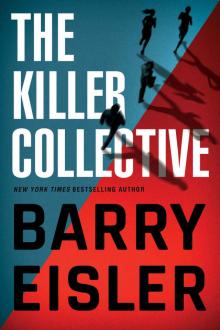 The Killer Collective
The Killer Collective The Chaos Kind
The Chaos Kind The God's Eye View
The God's Eye View Paris is a Bitch
Paris is a Bitch The Khmer Kill: A Dox Short Story (Kindle Single)
The Khmer Kill: A Dox Short Story (Kindle Single)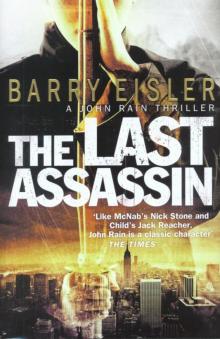 The Last Assassin
The Last Assassin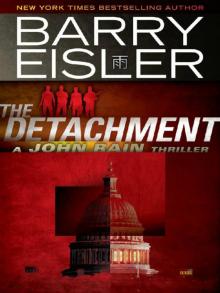 The Detachment
The Detachment The Night Trade (A Livia Lone Novel Book 2)
The Night Trade (A Livia Lone Novel Book 2)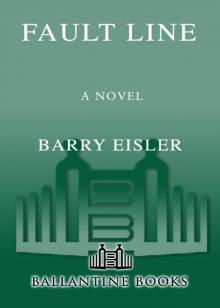 Fault Line
Fault Line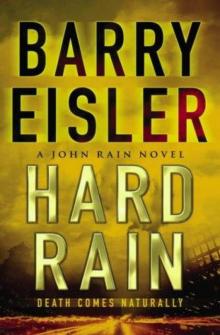 Hard Rain
Hard Rain The Khmer Kill_A Dox Short Story
The Khmer Kill_A Dox Short Story London Twist: A Delilah Novella
London Twist: A Delilah Novella The Lost Coast
The Lost Coast Rain Fall
Rain Fall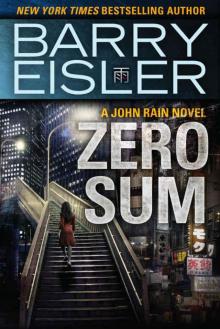 Zero Sum
Zero Sum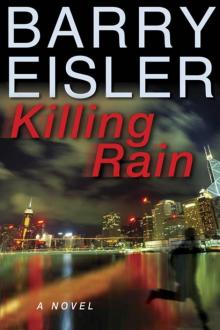 Killing Rain
Killing Rain John Rain 08: Graveyard of Memories
John Rain 08: Graveyard of Memories A Clean Kill in Tokyo (previously published as Rain Fall)
A Clean Kill in Tokyo (previously published as Rain Fall) Inside Out: A novel
Inside Out: A novel John Rain 07 - The Detachment
John Rain 07 - The Detachment Graveyard of Memories
Graveyard of Memories The Lost Coast -- A Larison Short Story
The Lost Coast -- A Larison Short Story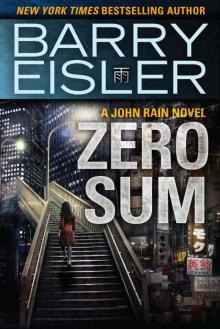 Zero Sum (A John Rain Novel)
Zero Sum (A John Rain Novel)